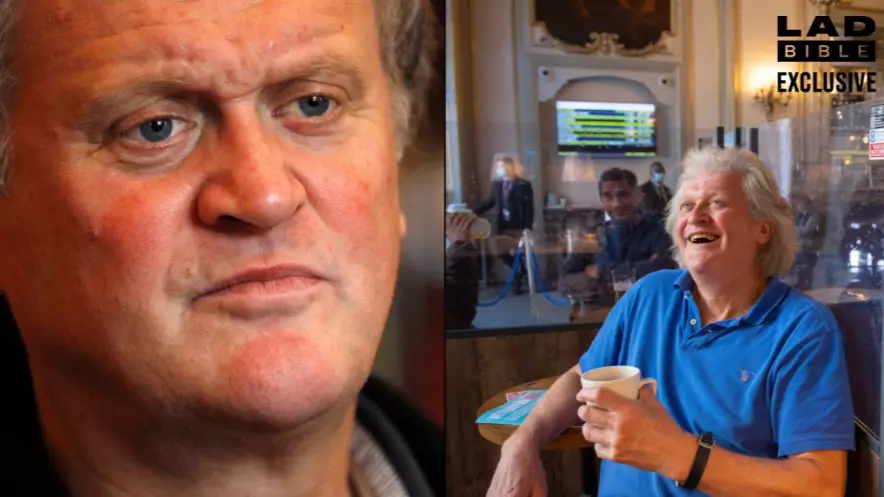
At the exact moment Tim Martin sits down in The Metropolitan Bar in London's Baker Street to talk to LADbible, across the city in Westminster, Chancellor of the Exchequer Rishi Sunak is delivering his Spring Statement against the backdrop of one of the worst cost-of-living crises in living memory.
The often-controversial JW Wetherspoon pub tycoon has become known for his outspoken views on everything from politics - Martin was one of the more recognisable faces of Brexit - to the price of a pint, and today he hopes Sunak will offer his industry some help.
In the end, it doesn't materialise. But Martin is watching on carefully.
"There's been massive injections of money into the economy, and normally that creates inflation, and it has done this time," he says, over a mug of coffee. "Whether that creates a recession is a bit more difficult to predict.
"The last couple of years have felt like a recession, whether there'll be one in the whole economy, I don't know."
Somewhere in the British psyche, there seems to be a niche place into which fits only 'Spoons'.
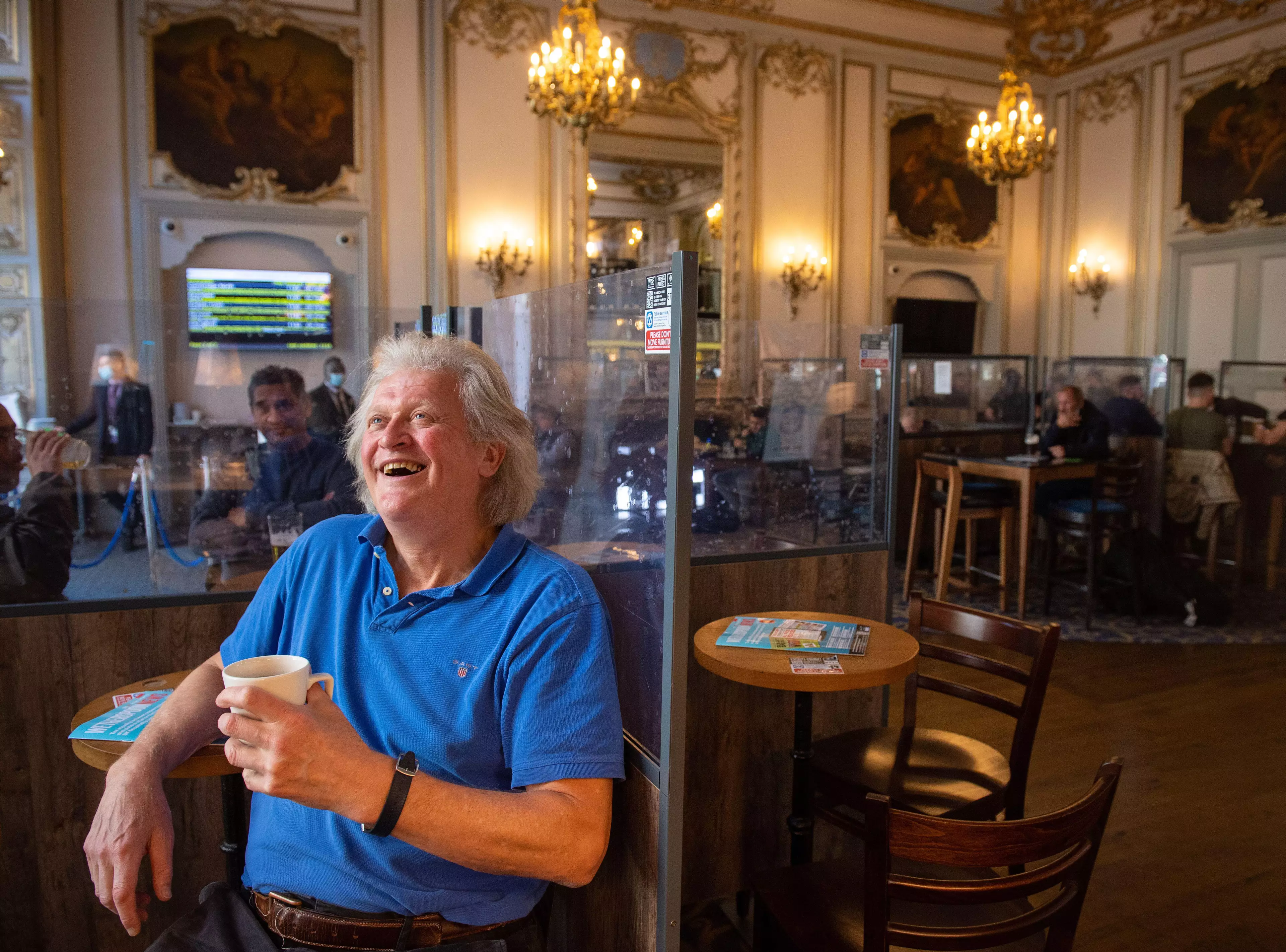
Known for cheap pints, cask ales, and curry nights, Martin has built up the company since 1979 to become the UK's largest pub chain, requisitioning grand buildings and filling them with punters by offering appealing prices and a familiar, simple pub atmosphere.
This universal appeal has created a nascent 'Cult of Wetherspoons' in which people go to impressive levels to find new and baffling ways to express their devotion.
Entire blogs and Facebook groups exist, dedicated to the carpets of Martin's pubs. A group devoted to counting the 'paltry' amount of chips received with various Wetherspoon meals and locations has more than 265,000 dedicated members.
Despite being a social media sceptic, Martin admits that particular group has permeated into his consciousness.
"I've got no defence other than that as a 17-stone publican, I haven't ever benefitted from someone nicking my chips," he said. "I always get the right amount, but I'm not sure anyone else does."
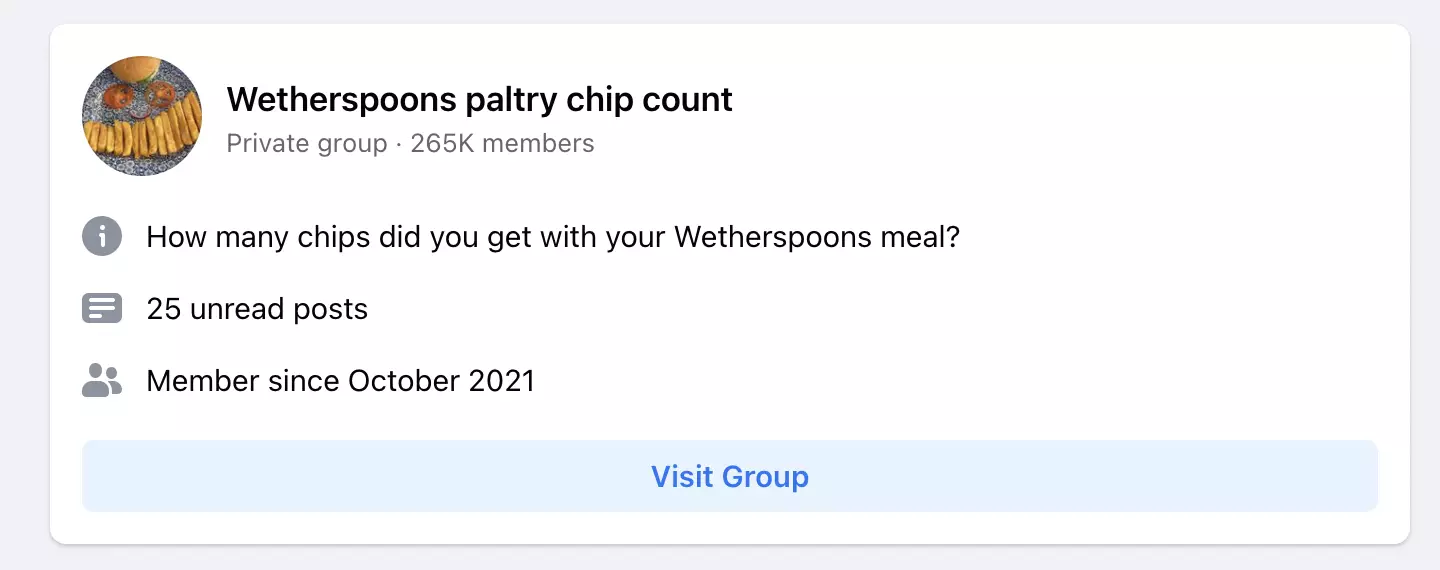
Discussing the unique position Wetherspoon finds itself in within British culture, he said: "I like to think we're honest.
"That might sound quite pompous in a way, but I think good outcomes depend on truth.
"I always try to be frank, and I think that if you can be frank, people will trust you.
"We're not perfect - I know that - but I'm happy enough with the public image."
On more hard-hitting matters, Martin is never shy in coming forward with an opinion.
In fact, he's often courted controversy through his willingness to provide a quote for the press, and this has led to a rare admission of regret.
At the beginning of the pandemic, Martin was heavily criticised - in print and in Parliament - over allegations that he'd told staff that they might face delays to pay, so should 'go and work at Tesco'.
When questioned on that, Martin produces a copy of Wetherspoon News, a shield in magazine form, that finds a way onto every table in his 800+ pubs.
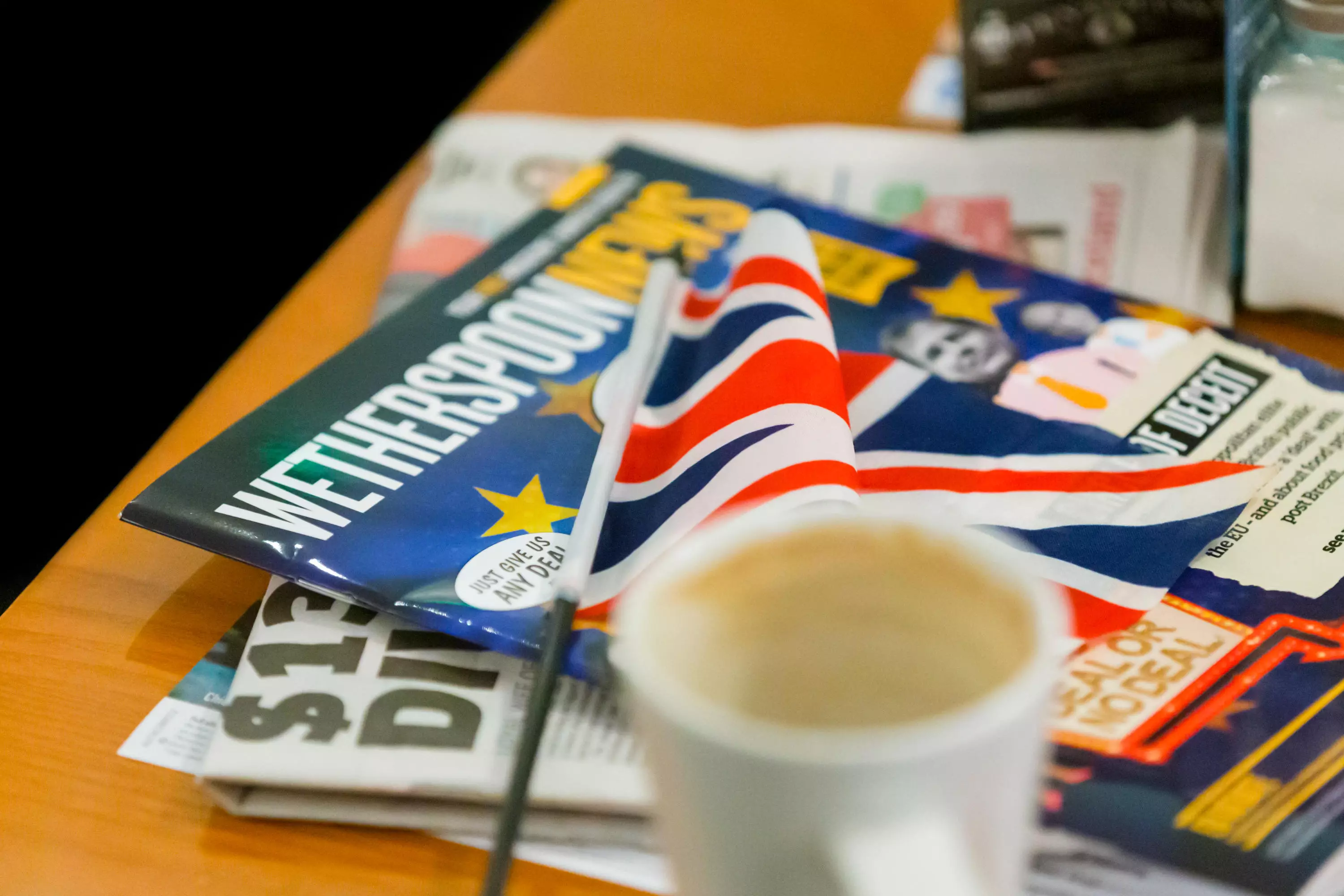
In this 'special edition', he claims to have set the record straight on his Tesco comments, and - sure enough - the first pages are packed with retractions from a slew of publications including The Times, Sky News, The Independent, Forbes, The Mirror, and more.
The general gist is that Wetherspoon did not in fact tell staff they wouldn't be paid, and Martin's Tesco comments were broadly inaccurate.
However, Martin says he still regrets how the situation went down.
"Things we said in the press were a little bit distorted, but obviously I regret that," he says. "That apart, I'm happy enough with how everything has gone.
"We're always trying to improve everything every week. The whole time there is a process of small improvements... harnessing those small improvements creates future success.
"We've got plenty of things wrong over the years, but it's just trying to take small steps in the right direction."
Back on Tesco, he said: "I didn't say go work at Tesco, and once you get into it, we've paid everyone every Friday since 1979 and never had any intention of getting rid of our staff - we depend on our staff.
"It [was] one of those things that gets a momentum of its own. It was something I said which got distorted in social media, taken up by a couple of MPs and grossly distorted by them."
At the risk of having to print a correction of our own, we'll take him at his word on that front.
Supplementary to his position as the face of Wetherspoon, Martin also had a prominent role in the campaign to have the UK leave the European Union.
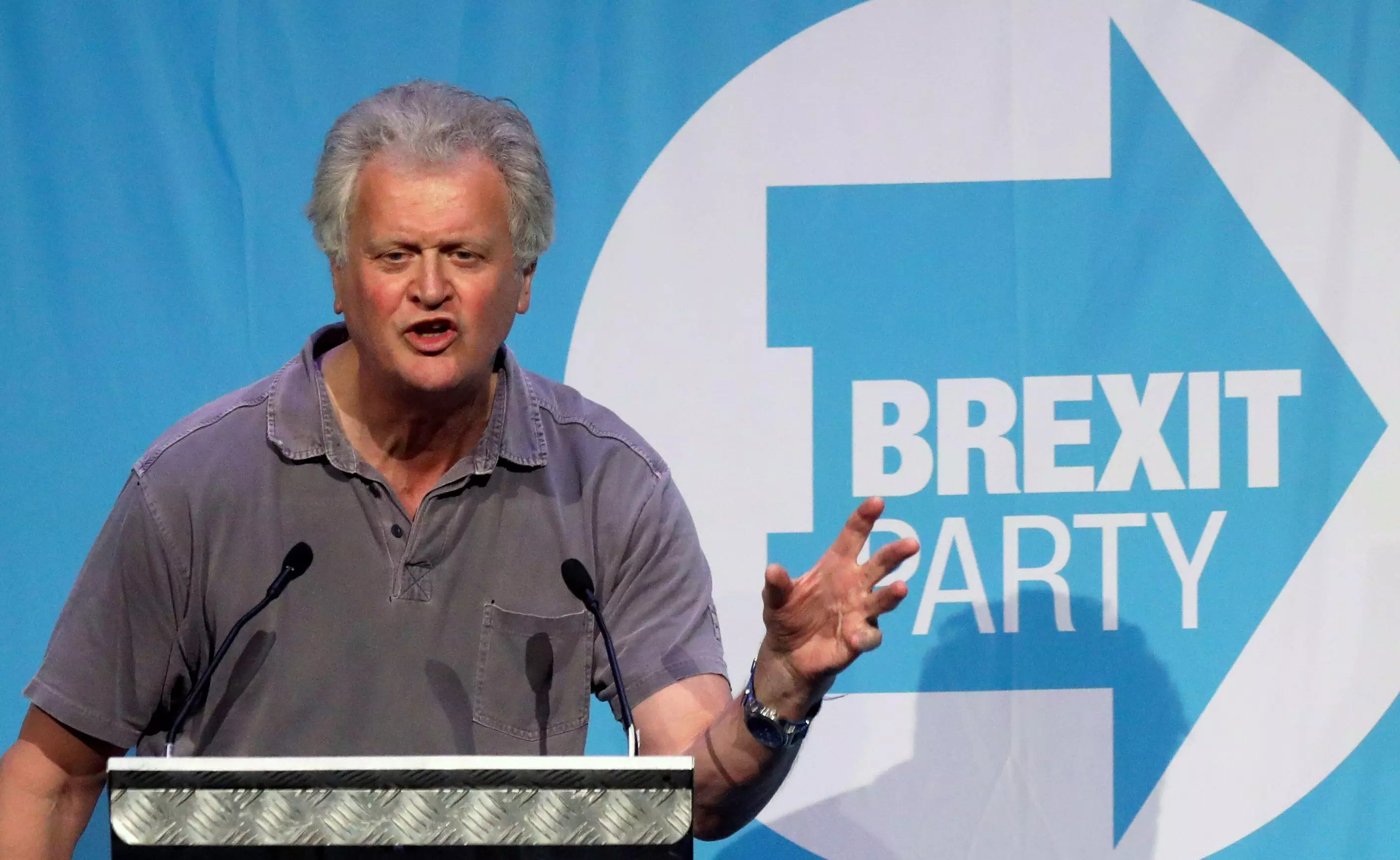
It's hard to tell whether Brexit has been a net success at this stage, but - as you can probably imagine - that hasn't dulled Martin's enthusiasm for the whole project, even if he has suggestions.
"If you speak to a lot of publicans, they're worried about staffing," he said. "A lot of it came from Eastern Europeans who did a fantastic job in the last 20-odd years.
"I'm in favour of a reasonable level of immigration, I think we've benefitted from it as a country.
"Maybe easing immigration rules would benefit [the country] but it's a hot political potato. We need a decent level of immigration, decided by our own government - not by people we haven't elected in Europe."
That immigration from Eastern Europe could possibly include thousands arriving from war-torn Ukraine in the coming weeks, and when pressed on whether they could hope to find employment at one of Martin's pubs, he responded: "In principle, definitely yes."
He continued: "I think Brexit is a long-term process. The short term has gone OK, and we've left.
"People we've elected run the country, for better or for worse. They're of course not perfect people but there'll be an election soon and we can change them if we want to.
"That's been shown in Japan, Singapore, and South Korea to be a very economic system. Democracy always seems messy, but it does work.
"I think Brexit will work. It's not nirvana, but I think we're doing OK."
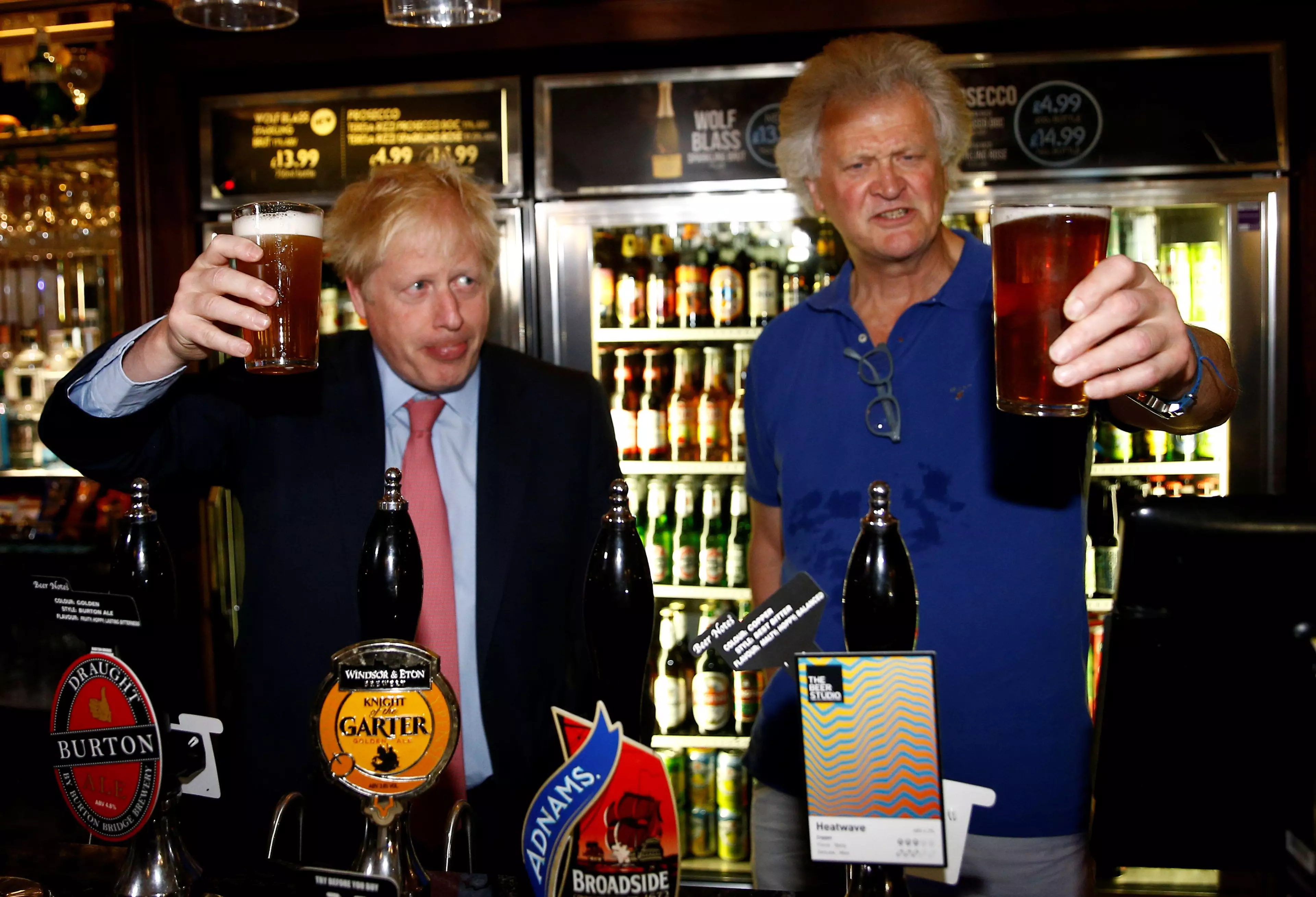
Sitting in the extravagant surrounds of Martin's Baker Street pub, set in a grand building next to the underground station, Martin espouses his views on - for want of a less clichéd term - the 'Great British Pub'.
Spoons has always been synonymous with affordable pints, even in the capital's Zone One, but he feels that not enough is being done to help pubs stay open amidst trying times.
With pubs dropping like flies, a backbone of British culture could become a thing of the past if not protected.
"I think that the pub is definitely threatened," Martin says. "Pubs pay 20 percent VAT on food sales, but supermarkets pay nothing.
"That [tax system] has widened the gap in prices between pubs and supermarkets, so I think that is quite a threat. Supermarkets have used that tax advantage to reduce their beer prices compared to 20 or 30 years ago, and that is a real threat.
"If pubs don't sell beer in decent quantities and people don't feel they can go out to a pub for a beer, that's quite difficult to overcome.
"We can deal with Tesco if we have the same taxes, but it's a government issue.
"We're campaigning for tax equality. Supermarkets don't pay VAT on food, we say pubs and restaurants shouldn't either.
"We realise that the government needs money and will lose some income through that, but we think it can have a sensible rebalancing of the tax system.
"It's an important principle of taxation that it should be fair and equitable between individuals and businesses."
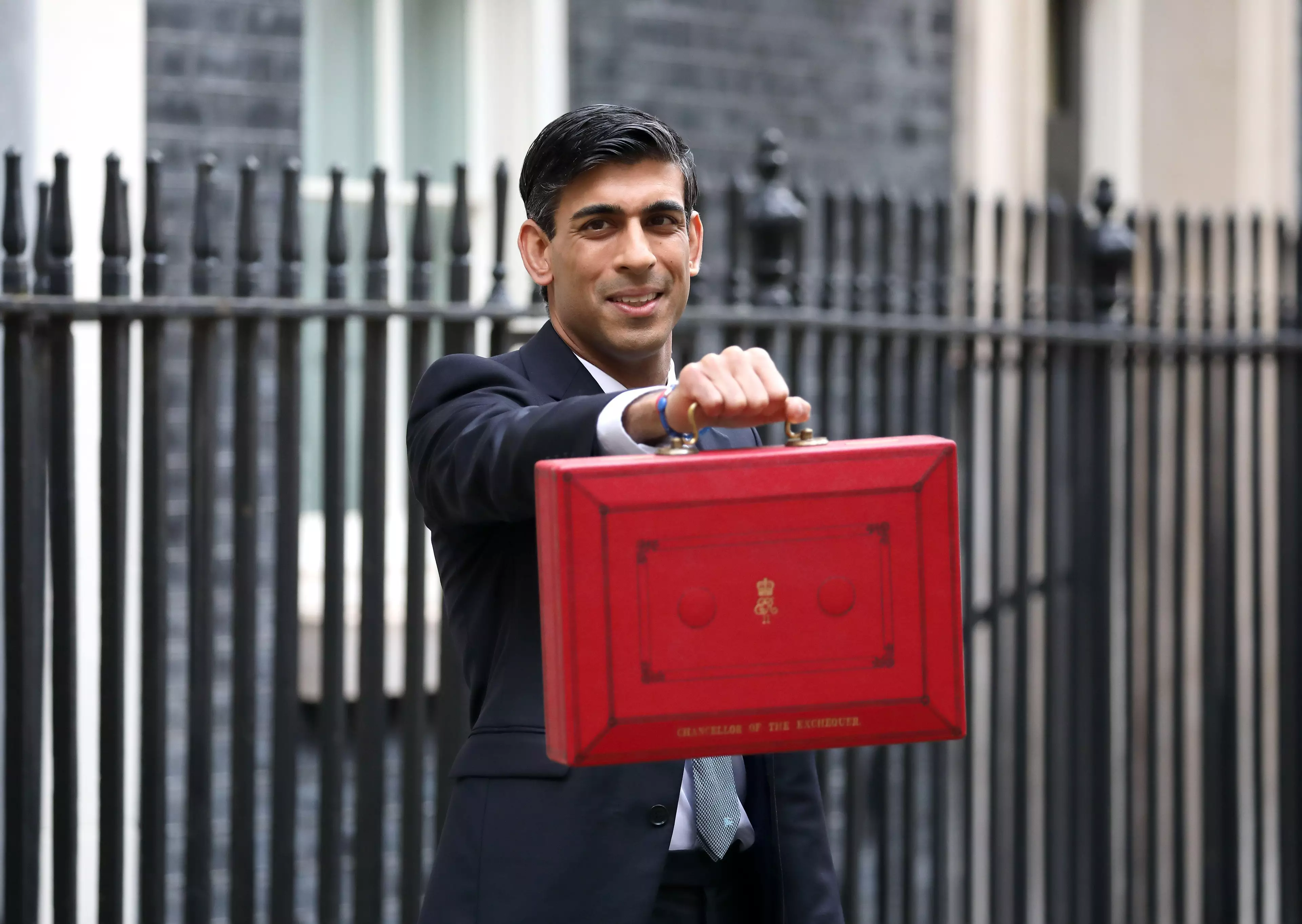
That's exactly the opinion you'd expect the UK's biggest publican to hold, but few would disagree that the pub is a vital part of many communities.
In a financial statement on 18 March, Wetherspoon reported figures that still showed a loss - Covid-19 had a lot to do with that - but encouragingly showed a return to almost pre-Covid levels of trading.
Over the three weeks before the report, sales were just 2.6 percent below those recorded in the same period in 2019.
Sales are still well below the £933 million of 2019, but the half-year up until 23 January still came in at £807.4 million.
It's a pre-tax loss of £21.3 million, which is less of a loss than last year, but still way behind the £57.9 million pre-tax profit of the last pre-pandemic year.
That shows that while there is still recovering to do, things are trending in the right direction for Wetherspoon, which is - hopefully - reflected across the industry as a whole.
Martin said: "Pubs are vital for social life.
"They provide more in taxes than people realise - Wetherspoon alone pays one pound in every 1,000 that is collected by the government.
"That's Wetherspoon, its customers and employees. It's a colossal amount of tax."
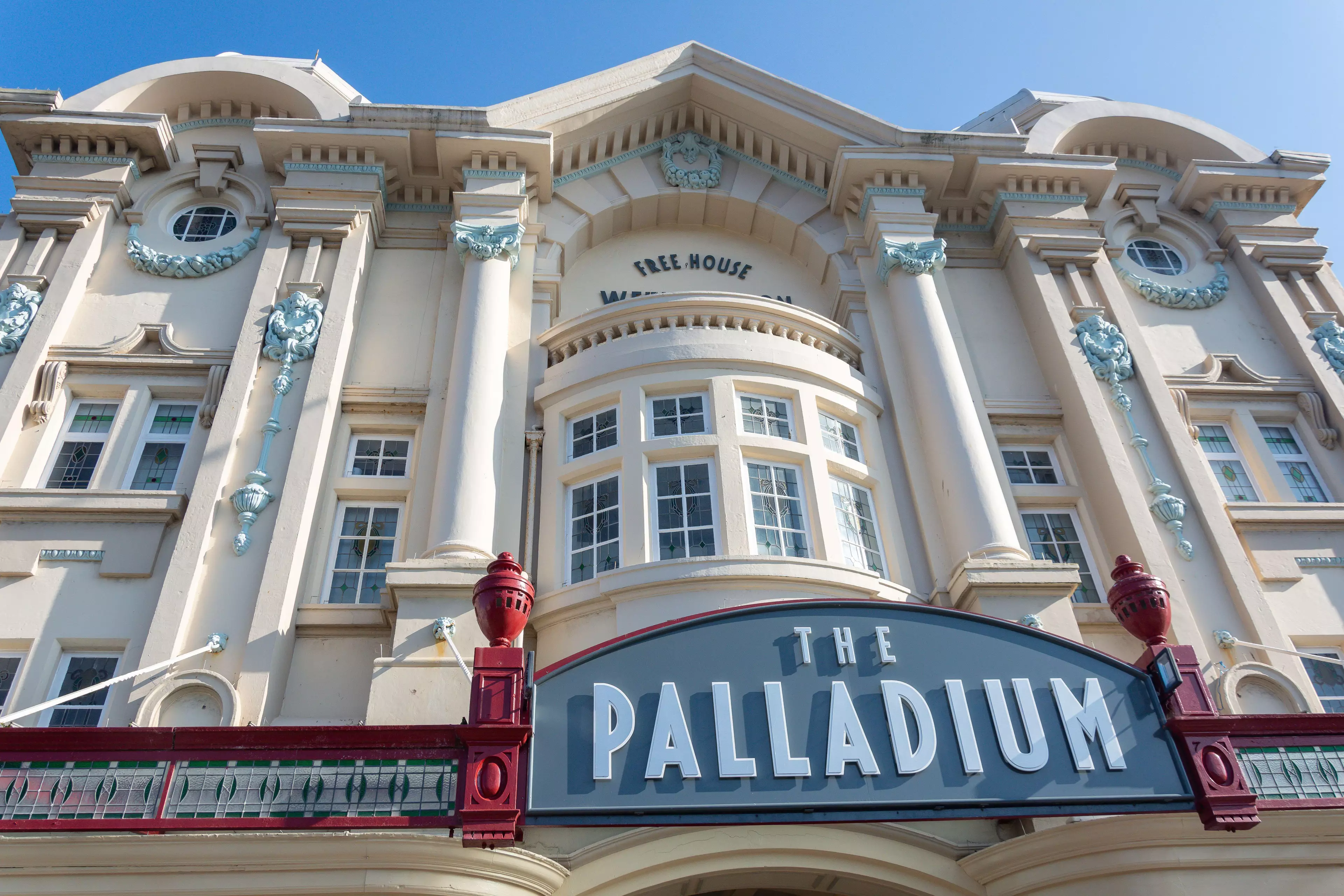
He continued: "We're very important for social lives around the country. For a lot of people, it's their only trip out.
"People always used to socialise around churches - and they still go to church - but for many people [pubs] are the main opportunity for socialising."
Having started in 1979 with a single pub, which he renamed as a dig at a teacher, Martin now has a chain that features in just about every town of significance across the UK.
He's made his millions, but seems to show no sign of his enthusiasm waning. At 66 years old, he should be contemplating his retirement, but he's quick to refute that suggestion.
"It's something I get asked," he explained. "But I think we're built to work. I'm happy to do a day's work, I enjoy my pint more in the evening [afterwards].
"So, I'm hoping to continue until five years after I'm dead."
Featured Image Credit: AlamyTopics: MoneySupermarket, Tim Martin, UK News, Wetherspoon, Food And Drink, brexit, Politics